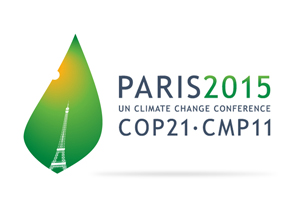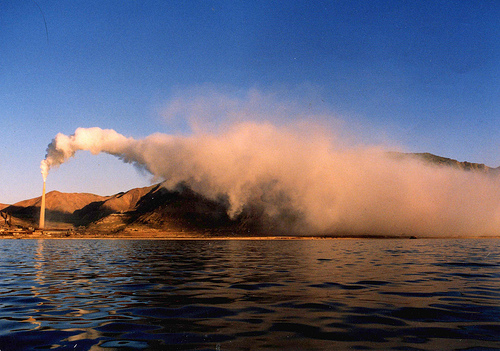It is proven how climate change is linked to human activity. Now we do not only have to deal with the dangerous consequences but we must also plan policies for a better future.
President Barack Obama‘s last month announcement of a 32% cut in the US power plants’ carbon dioxide emissions by 2030 on 2005 levels represented a courageous step in order to reduce the electricity-generated CO2 emissions. But the purpose of the President’s standing up was broader:
“Curbing pollution from power stations in the United States will (…), set a powerful example for the rest of the world.”

The 21st session of the Conference of the Parties to the United Nations Framework Convention on Climate Change (UNFCCC – COP 21) will take place in Paris, 30 November to 11 December 2015.
Indeed, his other objective was to foster the other nations’ willingness to take ambiguous commitments in the joint effort to limit climate change at the next United Nations Conference of the Parties (COP) taking place in France this December. It will be the twentieth COP been hold since 1992 in dealing with the issue.
Many are the expectations over the new December binding document, which will replace the obsolete Kyoto Protocol on climate change. The goal of the COP21 is to conclude an agreement among the 195 nation parties aimed at maintaining global warming within the 2-degreed-Celsius range over the pre-Industrial Revolution levels.
However the negotiations’ success is undermined by many challenges. First of all, the issue around the industrialised countries’ historical responsibility negatively affects the possibility to reach a consensus over the partition of each party’s efforts. Another crucial question is about the mechanisms supposed to monitor and enforce the undertaken commitments. Thirdly it will also be difficult to mediate between the climate-skeptic positions and the demands of the representatives of the countries at imminent risk, who are pushing for the reconsideration of the climate change limit within 1,5 degrees Centigrade (Le Monde).
According to The Guardian, the negotiations’ goal to reduce the fossil-fuel utilisation within a realistic timetable is “not likely to meet much opposition from the world’s poorest nations” due to the fact that small island states and arid and coastal nations, “have most to fear from climate change.” They are already affected by the rise of the sea-levels, fresh-water scarcity, soil erosion, cyclones and windstorms, whose intensity is only going to increment if tangible action to fight global warming will not be implemented urgently.
Politicians seem disconnected from reality, unresponsive towards scientists’ recurrent alerts. What experts cry out is that it is already too late. Climate change can not be arrested, but political willingness still have the power to partially reduce its devastating effects. But action must be taken now.
According to Global Footprint Network, an international sustainability think thank, on 13 August the world entered the ecological ‘overshoot’. For the rest of the year, the nature will not be able to regenerate itself and absorb the humanity’s production and consumption created. It happened six days earlier than last year.
Climate change sounds like a remote issue, not a severe risk particularly in the richest countries, according to the article published in Nature Climate Change last July. Apparently two degrees rise in global warming doesn’t mean a lot to them, but the most vulnerable have already been experiencing the catastrophic consequences.
The impacts of climate change will be pervasive, involving all the world, threatening not only human security but also international peace. Competition for scarce resources and natural disasters will enlarge the number of environmental refugees as deserts advance and sea-levels increase, UN Secretary General stated recently.
The years of inaction or poor actions must now come to an end, there is no much time left.


